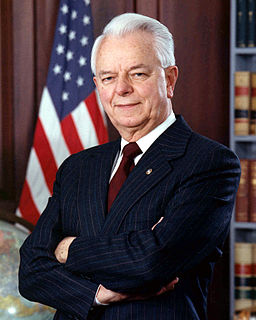A Quote by Harold Pinter
All I'm saying is that there are many different kinds of political theatre and many plays I greatly admire: 'Antigone,' 'Mother Courage,' 'All My Sons.' But, if I tackle a political theme, I have to do it in my own way.
Related Quotes
One of the appeals of William Carlos Williams to me is that he was many different kinds of poet. He tried out many different forms in his own way of, more or less, formlessness. He was also a poet who could be - he was a love poet, he was a poet of the natural order and he was also a political poet.
With theatre, you can interpret the most complex play on stage for it have meaning to an audience because you're dealing in images, you're dealing in action, you can use different idioms to interpret and clarify something which is obscured in the reading and of course there are different kinds of play, there are mythological plays, there are what I call the dramatic sketches, direct political theatre which is virtually everybody, but I find that you can use the stage as a social vehicle, you know, which any kind of audience.
When I search myself carefully I do think it's from my mother. I even feel strange saying that. Most people, I believe, when they're asked profound questions about their own persona are not really able to enunciate it, because it's a combination of so many things. But certainly influences early on that I felt from my mother. I wouldn't say she was "political" per se; she was sensitive to other people.
The adjective "political" in "political philosophy" designates not so much the subject matter as a manner of treatment; from this point of view, I say, "political philosophy" means primarily not the philosophic study of politics, but the political, or popular, treatment of philosophy, or the political introduction to philosophy the attempt to lead qualified citizens, or rather their qualified sons, from the political life to the philosophic life.
I can't define myself as a political writer - I don't think I've earned it, and I don't function as a political writer in the way that many of the writers I admire do. It's not simply a question of context, of where I'm writing from - there is much in American society that urgently needs to be written about. I think your work is always engaged with politics in the looser sense of the word - and that looseness is itself a kind of privilege - because politics and culture are evidently intertwined.
My feeling is that most political poetry is preaching to the choir, and that the people who are going to make the political changes in our lives are not the people who read poetry, unfortunately. Poetry not specifically aimed at political revolution, though, is beneficial in moving people toward that kind of action, as well as other kinds of action. A good poem makes me want to be active on as many fronts as possible.
If libertarianism were easy to explain, and it weren't easy to exaggerate the effects of libertarianism, I think it would have been done already. Many many very intelligent people have applied themselves to crafting an agenda that people could grab ahold of. But the problem of course is that libertarianism isn't political. It is kind of anti-political. It wants to take a lot of things out of the political arena.
The road, more than simply a system of regulations and designs, is a place where many millions of us, with only loose parameters for how to behave, are thrown together daily in a kind of massive petri dish in which all kinds of uncharted, little-understood dynamics are at work. There is no other place where so many people from different walks of life-different ages, races, classes, religions, genders, political preferences, lifestyle choices, levels of psychological stability-mingle so freely.
Any play that makes an audience think out of the box, that makes connections to life and names our pain and by doing so makes our pain subject to thinking and the process of understanding, is doing something inherently political. By promoting understanding, by putting experience in context, by making connections between the normal and the rational, theatre is an act of anti-terrorism. It stimulates courage and a survival spirit. In that sense of political, there are a lot of serious plays doing their work in the world.





































